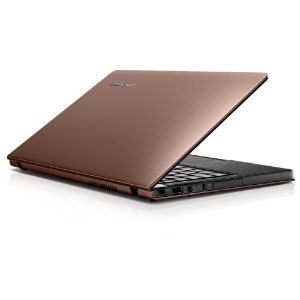College students can’t get by easily without their own laptop. Schools may have computer labs and other resources available, but professors expect students to have consistent access to a computer, whether it’s for writing papers, participating in online discussions or performing a number of other tasks.
Even high schools are seeing laptops become more prevalent among students. But there are a lot of different laptop computers available, and not all of them are suited for a student’s needs. Some specifications matter more than others. Here are six aspects to consider when deciding which laptop is right for you.
1. Find the right size
Laptops come in a wide range of sizes, and different students have different needs. A mobile student, such as a journalism major or someone else working in a variety of locations, probably wants a smaller computer that’s light to carry and easy to use in ever-changing conditions. Engineers, photographers, designers and architecture students, on the other hand, need large screens to accommodate their detailed work. Keep your major in mind when choosing the ideal size.
2. Invest in a strong outer shell
Cheaper laptops come equipped with plastic paneling to serve as protection for the hardware within. Over time—particularly in the hands of a college student—this paneling doesn’t offer much protection. For long-term durability, an outer shell made of aluminum, carbon fiber or other similarly strong materials will preserve your computer and help you get years of use out of it.
3. Get specs built to last
If you’re looking for the lowest cost possible, you’ll probably end up with a computer that’s one week from being outdated. Modern laptops—even the affordable models—are often equipped with technology that should remain relevant over the next few years, but you need to make sure these specs are featured on your desired computer. Look for lithium-ion batteries, solid-state drives and next-generation processors to be confident your computer will be useful several years down the road.
4. Aim for 5.5 hours of battery life
Battery life is a valuable commodity when you’re picking out an affordable laptop. With the new types of batteries now being rolled out and installed into even bargain computers, you should never settle for anything less than 5.5 hours of battery life. Good batteries range from six to nine hours of battery, so explore your options before you settle on a specific laptop.
5. Choose a great keyboard and touchpad
It sometimes gets lost in the shuffle, but a laptop’s keyboard and touchpad are key to its comfort and functionality. Make sure you’re investing in a computer that’s easy and comfortable to use. Check out reviews or go to a store and test the model out yourself before taking the plunge.
6. Consider Macs and Windows computers
It’s normal to have a preference between Windows and Mac computers, but don’t restrict yourself to one or the other before you see what each has to offer. Take your time and keep an open mind when searching for the right computer.
By taking your time and reviewing all the options, you’re much more likely to find a computer that suits your wants and needs. Just don’t allow yourself to be swayed by what your friends are choosing. Computers aren’t toys, they’re your most important tool and resource in your college years. Put in the hard work to find one that will help you succeed in and out of the classroom.












Leave a Reply